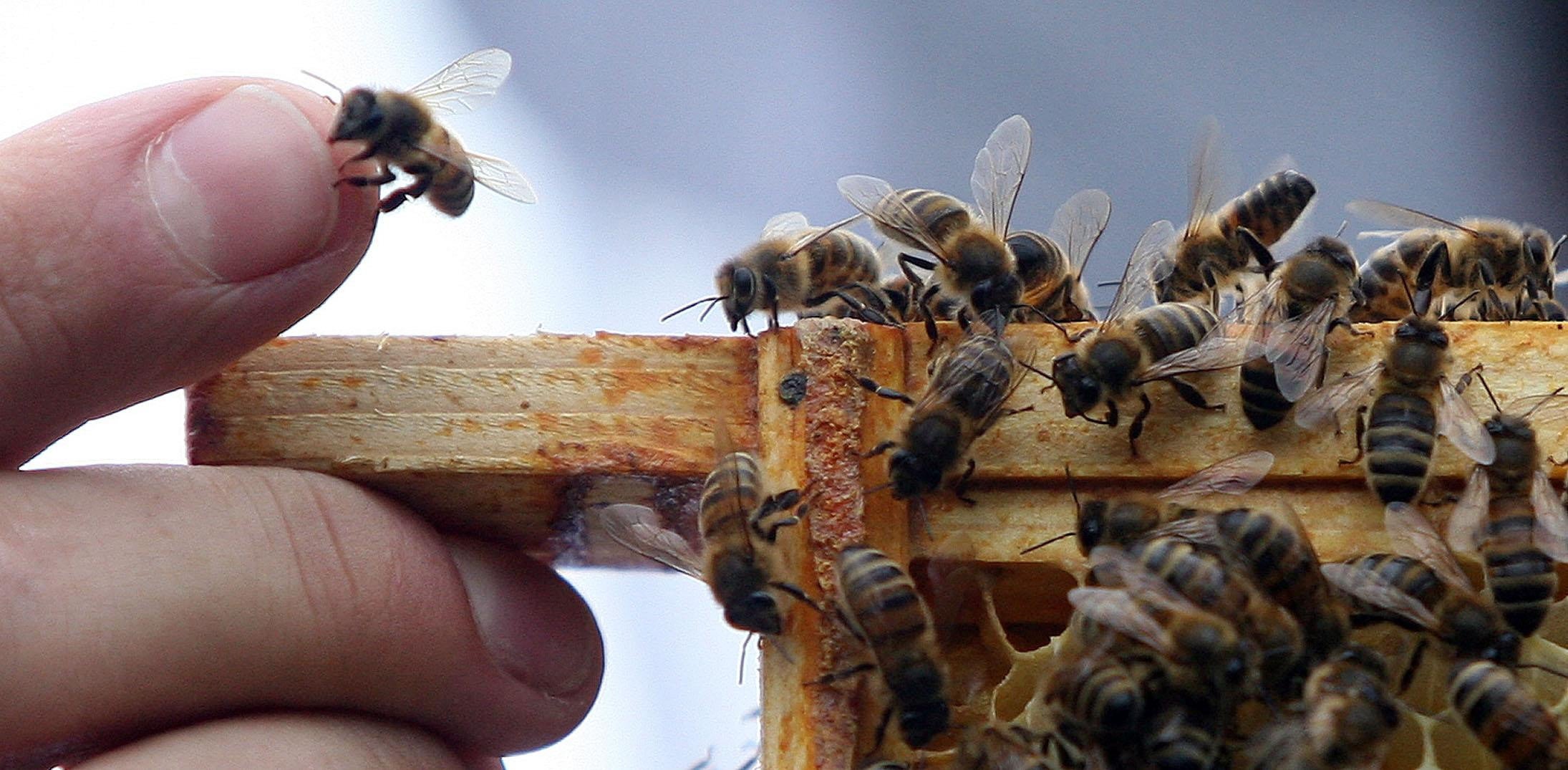Thousands of hibernating bees die after vandal damages hives in suspected revenge attack
Beekeeper Charlie Syson believes it could be a revenge attack

Thousands of bees have died after a suspected vandal damaged their hives, leaving the hibernating insects exposed to the elements.
Beekeeper Charlie Syson believes someone “cruelly destroyed” the honeybees’ homes on his allotment in Shrewsbury, Shropshire.
When he checked on the hives earlier this month after a bout of rain and frost, he was horrified to find the roofs removed and their securing straps slashed.
He noticed the structures had been “contaminated by a chemical substance” that ruined the wooden and wax frames inside.
Mr Syson said he was “devastated”.
“Beekeeping is a real hobby of mine and it really really upset me,” he told the BBC.
“It was two hives so there were two good, strong colonies there.”
He said he didn’t know who was behind the damage at Greenfield Allotment but suggested someone may have been taking out their anger after getting stung by a bee.
The hives cost around £200 apiece and Mr Syson – who has been looking after them for three years – was ready to throw in the towel.
But a crowdfunding campaign to replace the bees’ homes has taken off, raising more than £1,000 – as well as hopes of a fresh start.
Within six hours Mr Syson had enough money to pay for an extra colony, and he’s now planning to introduce native black bees and a wildlife hive.
But he’ll be keeping his guard up. He says he’s thinking of using padlocks and cameras to make sure the hives are out of harm’s way.
One of the reasons Mr Syson’s fundraiser generated such a buzz could be the reward he offered those who pledged their cash.
When the new hives are up and running, donors will be handed bespoke jars of golden Shropshire honey.
Bees are vital pollinators for flowers and crops, but Mr Syson said people often don’t appreciate how important they are.
In the UK, a third of our wild bee populations are in decline. It’s thought much of this is due to the loss of natural habitat, as well as increased use of pesticides and herbicides.
Join our commenting forum
Join thought-provoking conversations, follow other Independent readers and see their replies
Comments
Bookmark popover
Removed from bookmarks